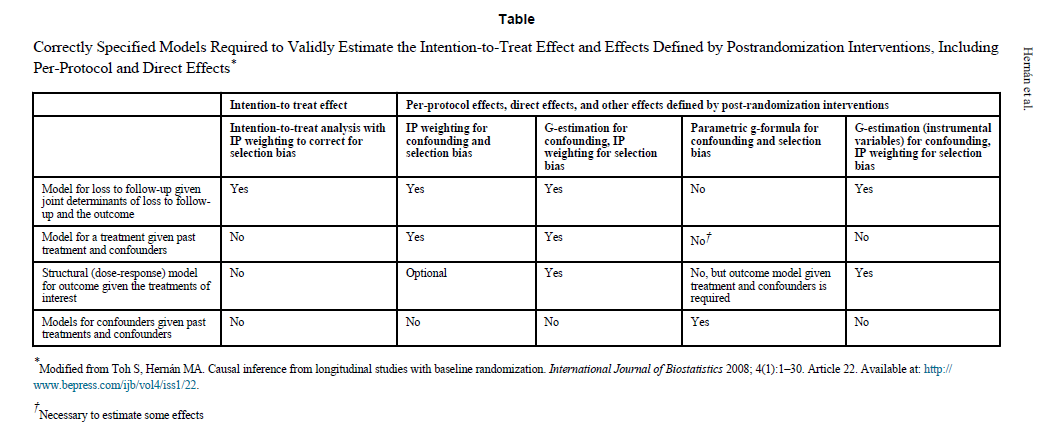"In summary, the similarities between follow-up studies with and without baseline randomization are becoming increasingly apparent as more randomized trials study the effects of sustained interventions over long periods in real world settings. What started as a randomized trial may effectively become an observational study that requires analyses that complement, but go beyond, intention-to-treat analyses. A key obstacle in the adoption of these complementary methods is a widespread reluctance to accept that overcoming the limitations of intention-to-treat analyses necessitates untestable assumptions. Embracing these more sophisticated analyses will require a new framework for both the design and conduct of randomized trials."
This is from a paper by Hernan, Hernandez-Diaz, and Robins (2013) that just came to my attention now. Discussing the fleeting distinction between efficacy and effectiveness, the article points to the need to analyze, especially longer-term, data from RCTs in non-experimental ways in favor of the ITT - either because you have to (differential attrition) or because the object of interest is different. Overcoming the reluctance in the quote above, we recently went for the use of such methods in the longer-term follow-up of our cash transfer experiment in Malawi: there, analyzing outcomes of the children of original program beneficiaries necessitates such analysis. We had people tell us to just not report that stuff because you have to use "non-experimental" methods, but the question is too important and I am glad that we did not exclude this evidence...
The paper goes on to discuss g-methods, of which IPW is one. At four pages, it's worth your time, which will, of course, send some of you download and read Robins and collaborators' work on these methods for the past 30 years.

Development Impact is on vacation for August - we'll be back after Labor Day in the U.S.


Join the Conversation